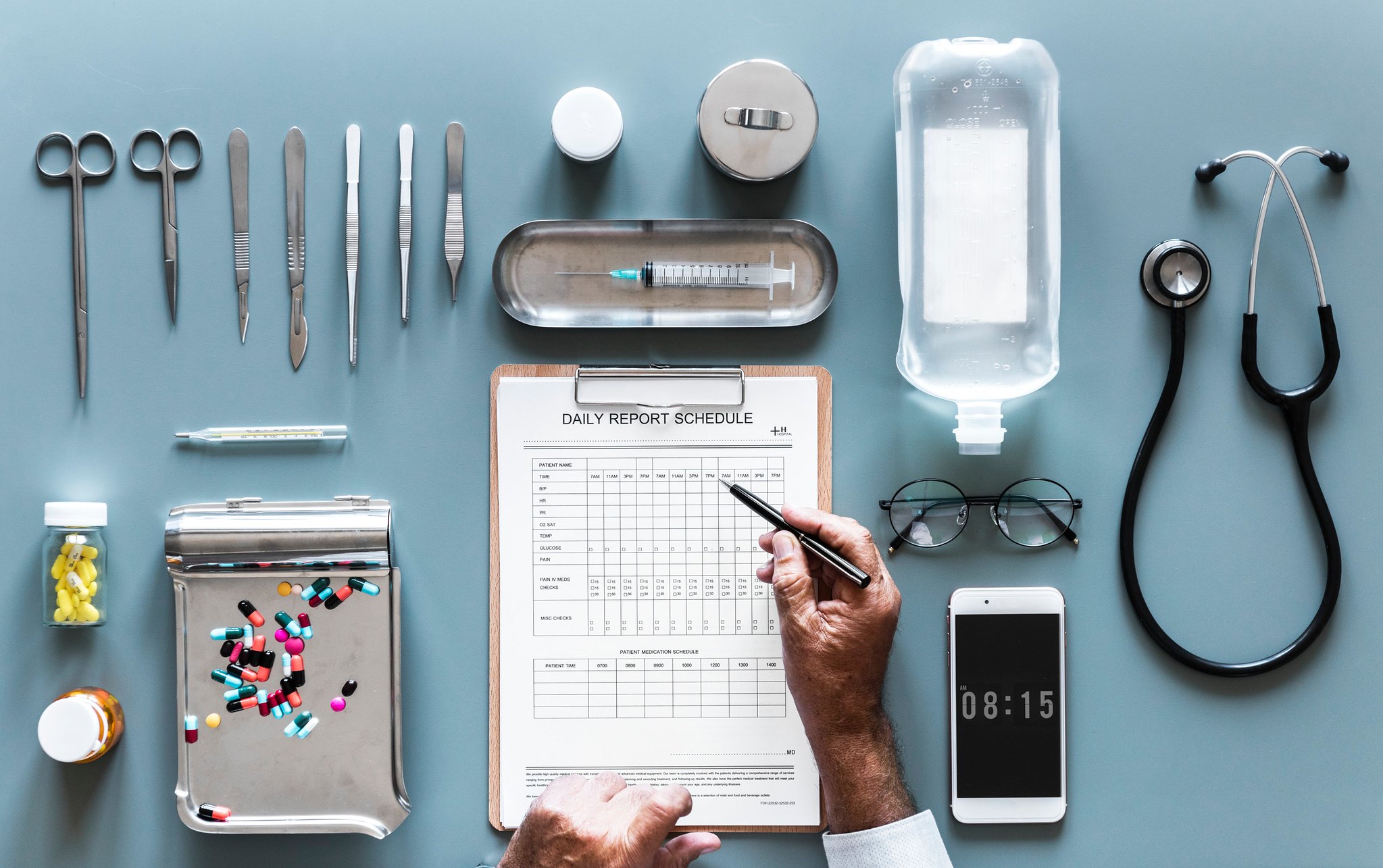Researchers examining a commonly used questionnaire found that it “substantially overestimates depression prevalence.” The survey, called the Patient Health Questionnaire-9 (PHQ-9), is a depression screening tool often used in primary care. It’s also commonly used by researchers to estimate how many people in the population would receive a diagnosis of depression.
However, the researchers found that it was twice as likely to diagnose depression as the structured clinical interview (SCID). This could lead to massive inflation of the estimates of how many people “have” depression in the population.
The research team was led by Brooke Levis and Brett D. Thombs at McGill University, Montréal. The team also included influential Stanford statistician John P. A. Ioannidis.
 The researchers looked at the data from 44 different studies, including 9,242 participants. The studies all included both the Patient Health Questionnaire (PHQ-9), as well as the structured clinical interview (SCID).
The researchers looked at the data from 44 different studies, including 9,242 participants. The studies all included both the Patient Health Questionnaire (PHQ-9), as well as the structured clinical interview (SCID).
The PHQ-9 is a nine-question survey that is used for screening—identifying people who may meet the criteria for depression to send them for further assessment. The SCID is a lengthier interview that is intended to be used to diagnose depression.
Levis and the other researchers examined how many people were diagnosed with depression based on the SCID, and compared that with how many people had a PHQ-9 score of 10 or higher, considered the cut-off score for depression.
In the study, more than twice as many people were diagnosed with depression based on the PHQ-9: 24.6% of the participants met the PHQ-9 score of 10 or higher, while only 12.1% met the criteria for depression on the SCID.
One problem identified by the researchers is that 90% of the population estimates of depression prevalence are based solely on screening tools like the PHQ-9. These published surveys, which estimate how many people “have” depression, are likely to overestimate prevalence by around twice as much.
Another problem is that the screening tool seems to be generating a lot of false positives—people who are told their mental health is a concern or told they “may have” depression, and pushed to receive a further assessment. Around half of these people will then discover that, apparently, they never “had” depression at all.
Even more concerningly, although the PHQ-9 is officially a screening tool, not a diagnostic measure, it is still often used to make a diagnosis, especially in primary care. Rather than conduct clinical interviews like the SCID, doctors may have patients fill out a PHQ-9. If they score a ten or higher, doctors may consider that good enough to diagnose the person with depression. This is likely to lead directly to antidepressant treatment.
Unfortunately, this is overdiagnosis: A large number of people receiving the diagnosis this way would not meet the criteria as defined in the Diagnostic and Statistical Manual of Mental Disorders (DSM 5). It is very likely to lead to overmedication as well since antidepressants would likely be prescribed for many of these patients. The researchers write:
“Estimates of depression prevalence should be based on validated diagnostic interviews designed for determining case status; users should evaluate published reports of depression prevalence to ensure that they are based on methods intended to classify major depression.”
****
Levis, B., Benedetti, A., Ioannidis, J. P. A., Sun, Y., Negeri, Z., He, C., Wu, Y., Krishnan, A., Bhandari, P. M., Neupane, D., Imran, M., Rice, D. B., Riehm, K. E., Saadat, N., Azar, M., Boruff, J., Cuijpers, P., Gilbody, S., Kloda, L. A., McMillan, D., . . . & Thombs, B. D. (2020). Patient Health Questionnaire-9 scores do not accurately estimate depression prevalence: individual participant data meta-analysis. Journal of Clinical Epidemiology, pii: S0895-4356(19)30735-8. DOI: 10.1016/j.jclinepi.2020.02.002 (Link)















How is your appetite?
Really good.
“patient” denies…..
How is your sleep?
Really good.
“patient” denies….
Do you experience joy?
Yes.
“patient” leans toward mania.
Do you experience sadness?
Sometimes.
“patient” seems to suffer from depression.
I would recommend this “patient” to be evaluated further for possibility of mania, depression, possible bi-polar with possibility of personality disorder.
You’re welcome, that will be $300 bucks please.
But doctor, I am here for this growth on my arm.
“patient exhibits anxiousness over a tiny bump on her arm” In order to address her anxiousness, I recommend sending her to a specialist, to make sure that there is nothing to be anxious about, but would think this patient would benefit from a “temporary” course of benzos or 1500 mG of gabapentin. I lean towards gabapentin for it’s non addictive and non side effects.
Although I do think that the patient would benefit from a trial of paxil and possibly an add on of an antipsychotic.
That will be another $300.
Report comment
Sam, you think doctors love to “diagnose” everything as mental so they can ignore real medical problems and throw drugs at phony ailments with no biomarker? (Incapable of DISPROVING. Hence they get off Scot free since they can never be accused of a misdiagnosis.)
They love to throw SSRI’s at everything. Stomach cancer. Lyme disease. TBI. Crohn’s. Arthritis. Yeast infections along with all things female. 😛
Beats having to be professionally competent and solve real issues doesn’t it?
Report comment
“…Hence they get off Scot free since they can never be accused of a misdiagnosis.)”
That is just it Rachel. In real medicine, real diseases, real tests. If a doc makes the wrong diagnosis, another doc will correct it.
To top it off, both, the wrong diagnosis and the real one, do not rob you of your credibility.
The wrong diagnosis does not stand as something real.
In psychiatry, the old label, even if not agreed with by another shrink, still stands. Why is that? Obviously it is derived at by opinion.
Shrinks realized that and so try to “diagnose” everyone with “something”. Or your records follow, and they simply check and add something else.
Even in regular medicine it has been to the point of ridiculous. Many people suffer at the hands of regular docs who attribute ALL things they can’t be bothered with or heal, or find, to psychiatric.
Even in their circles, sloppy care or non-care, is protected.
We see articles/studies constantly where the “emotional” part in disease is presented as “illness”.
I read one on copd patients where researchers found that some people with copd had negative facial expression, and some did not, and that the ones with negative expressions died sooner.
The REAL truth to COPD IS, that it is much more severe in many, much more deteriorating, in fact terminal and on their way out.
Yet the last present dying people get is some bullshit propaganda that where the purpose is ABSOLUTELY not about trying to discover more about phenotypes, severity and how to support dying people.
It becomes looking for an alternative to knowing nothing about science.
Knowing nothing about cures, or different severity.
Psychiatry became the alternative to real discovery, or even just to say, we have so little knowledge.
That is so sad, that real men, real scientists are hiding their lack of knowledge behind the crap BS called psychiatry.
And ohh, they ALL know. There are no ignorant. It is done full knowledge.
It used to be respectable to become a doctor.
It is not anymore. The best of them will eventually bow to how the system is run. Psychiatry runs ALL medical systems, and also tries to be the legal system.
The strength it gained is phenomenal. It really is a marvel.
Like all other ideals, born out of “thinking”, it caught on, and like all other systems, the peasants are the affected.
Report comment